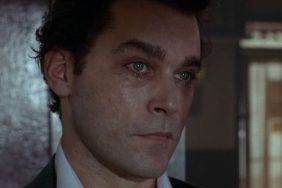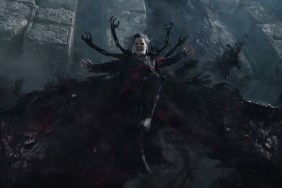When a movie makes money, you can bet your sweet so-and-so that the studio that released it will want to capitalize on that success. That’s why we get action figures, t-shirts, sequels and – when it makes even the slightest amount of sense – prequels, i.e. films that take place before the events of other films.
It’s a tricky business, making a prequel. Many of the plot points are a foregone conclusion because we know where at least some of the characters wind up: they wind up at the beginning of the other movie, the one we already saw and liked, the one that made us want to see a prequel in the first place. But although it’s hard to make a good prequel Hollywood keeps trying. This weekend sees the release of Ouija: Origin of Evil, which tries to erase the ill-will from the first Ouija by showing how one character became mentally ill in the first place, and that made us wonder: what’s the best prequel ever?
So we asked our panel of film critics – Crave’s William Bibbiani, Legion of Leia’s Witney Seibold and Collider’s Brian Formo – to each present just one film that represents the pinnacle of the genre. As usual, they couldn’t agree on a thing. Find out what they picked, let us know your favorites, and come back next week for another all-new, highly debatable installment of The Best Movie Ever!
William Bibbiani’s Pick: Twin Peaks: Fire Walk With Me (1992)

New Line Cinema
When we think of “prequels” – which, in the grand cosmic scheme of things, we only just started doing – we tend to think of prequels to other movies. But the term “prequel” – which, again, we only just made up – mostly just means a story that takes place before another story. So if you ask me, a prequel to a television series should count. Heck, my two favorite prequel movies are both TV series tie-ins. I’ll get to my favorite in a moment, but if you haven’t seen Battlestar Galactica: Razor, golly gosh, did you miss out.
The year was 1992 and Twin Peaks, which was briefly the most popular television series in America, had already fizzled out. Canceled and rapidly becoming a punchline, thanks to a murder mystery that seemed to never end and a string of easily quotable “quirks” that gave casual viewers an easy way to dismiss the show as an exercise in style over substance, the prequel film Twin Peaks: Fire Walk With Me was probably destined to be overlooked. Or worse, written off as a cash-in. But Fire Walk With Me wasn’t fan service and it wasn’t lazy, it was one of the most horrifying movies of the decade, exposing the days leading up to the death of Laura Palmer (Sheryl Lee, finally taking center stage) as a nauseating countdown to tragedy.
By this point, viewers already knew who killed Laura Palmer. Twin Peaks: Fire Walk With Me doesn’t add much to that backstory, aside from some weird new side characters (played by the likes of David Bowie, Chris Isaak and Kiefer Sutherland). You are expected to watch the terror unfold as you know it must, and stew in that helplessness. You cannot stop the death of Laura Palmer. You came to watch her die. So watch it, you monsters, and beware, because you will only leave Twin Peaks: Fire Walk With Me with more questions. You get what you deserve. Grim and powerful drama.
Witney Seibold’s Pick: Fast Five (2011)

Universal Pictures
Prequels have always been something of a cheap way to tell a story. For the most part, prequels are built specifically to bank on lingering affection for the original chapter, and hope to hook audiences and existing fans with a faint (or, more often, not-so-faint) whiff of cosmic destiny. Sequels, while returning to the same material, at least tend to be a further exploration of what a character can become rather than dwelling on where they came from and what they are going to inevitably become. I would rather ponder the mysteries of a character like, say, Boba Fett, than get a clear portrait of where he was born and how he became the way he is. Only sometimes does a retrospective actually work. I understand The Godfather Part II is quite good. It’s my own fault for not seeing it yet. Yes, I know.
So, as prequels go, I will have to skew pop, and select Fast Five, the fifth film in the Fast and Furious series, as the best prequel. It only stands as a prequel in the character played by Sung Kang, who died in the third film, but returned for this one. It was in a mid-credits stinger in Fast & Furious 6 that we learned that Fast Five was a proper prequel at all; until then, Kang’s character could easily have escaped death somehow.
Fast Five was the fifth film, but in many ways, it was the first. It was the first time that the filmmakers realized that they had accumulated a gigantic ensemble, and elected to assemble them all – Avengers-like – in one gigantic globe-trotting heist movie. The film is bright, fun, silly, and amazing. For the first time, it seemed the hit films had discovered what they were always meant to be: High-octane matinee action. The previous films, while often of good quality, were all possessed of a steely quality that belied any humor or fun. Fast Five shifted tone into something almost nostalgic in its childlike wonder of fast cars and blasty boom-booms.
Brian Formo’s Pick: Captain America: The First Avenger (2011)

Marvel Studios
Prequels have been rising ever since the cineplex dreamed it could be serialized like television. But it’s not been used as a method to get to know the characters as closely as you might in television. It’s generally to see them do similarly amazing feats, with perhaps a little less know-how/awkwardness, proving that their heroism/comedic timing/quick problem solving is intrinsic. (The Godfather, Part II is the closest exception. However, half of the movie was still pushing the narrative forward, so instead of being a pure prequel it’s a film with flashbacks for Vito and forward motion for Michael.)
Despite despising how sequels are rarely presented as standalone films—but instead always set up another sequel by the end, as opposed to sealing the narrative for sole watchability—I do think that the best pure prequel is actually one of the films that created the rise and fascination with serial filmmaking. But Captain America: The First Avenger is actually the strongest standalone movie in the Marvel Cinematic Universe, too.
The MCU was kicked off with Iron Man because that corporate playboy swagger and profiteering through war mechanics is most applicable to our times. Captain America (Chris Evans) is an earnest do-gooder who learns the power of confidence and strength through a WWII military program that changes his body from a string-bean into a mass of muscles and quick reflexes. The importance for this hero is that his genuine goodwill and spirit remains; now he just has the physical tools to really do good.
With The First Avenger, Joe Johnston gets to make the most freeing film to date in the MCU. And he gets to dapple with propaganda newsreel aesthetics and a throwback old-school screwball romance (“I had a date!” is the most cheer-worthy line in the MCU and Evans is casting perfection). Sure, there is a set-up for more things to come, but it doesn’t feel telegraphed the whole way. This is contained feel good fun.








